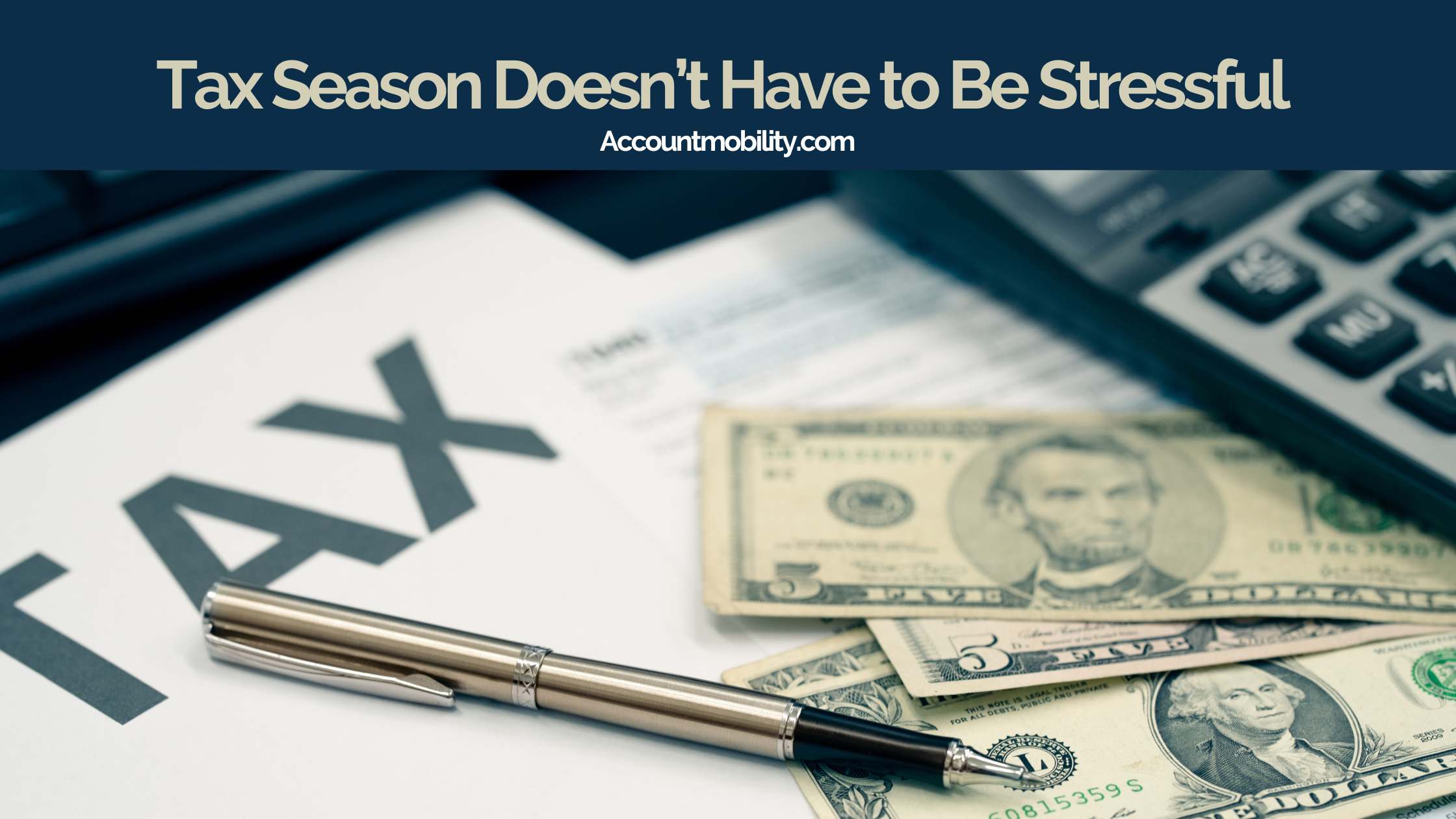Choosing the Right Business Structure for Tax Efficiency is one of the most important decisions an entrepreneur will make. Your choice shapes how much tax you pay, how profits move through your business, and how easily you can grow. The right structure can help you legally minimize taxes, while the wrong one can create unnecessary financial strain for years. This guide breaks down the tax advantages and drawbacks of LLCs, S-Corporations, and Partnerships, and helps you determine the Right Business Structure for Tax Efficiency based on your goals and income. Why Your Entity Matters for Taxes Your business structure influences: Total tax burden Self-employment tax exposure Deduction opportunities Audit risk Future growth options Profit distribution rules Many owners consult outsourced tax preparation services, tax management services, or full-service tax & business services to evaluate long-term tax implications before operating under a specific structure. How Each Business Structure Affects Taxes 1. LLC (Limited Liability Company) LLCs offer unmatched flexibility and simplicity making them a popular starting point for new and growing businesses. Tax Treatment A single-member LLC is taxed like a sole proprietorship, while multi-member LLCs are taxed like partnerships. LLCs can also elect to be taxed as S-Corps, which adds significant tax planning flexibility. Key Tax Advantages Pass-through taxation avoids corporate double taxation Broad deduction opportunities Low-maintenance compliance Ability to change tax classification later Many early-stage companies find that an LLC provides the Right Business Structure for Tax Efficiency because it allows them to start simple and optimize when revenue stabilizes. 2. Partnership Partnerships are ideal when multiple owners want flexible profit allocation and pass-through taxation. Tax Treatment A partnership doesn’t pay income tax directly. Instead, profits and losses pass through to partners, who then pay tax individually. However, partners typically owe self-employment tax on their share of income, unless they qualify as limited partners. Key Tax Advantages Clean pass-through taxation Flexible profit-sharing options Ideal for firms with multiple active owners 3. S-Corporation S-Corps are widely preferred by established businesses because they offer strategic tax savings through the salary-and-distribution split. Tax Treatment Owners must pay themselves a “reasonable salary,” which is taxed as ordinary wage income. Remaining profit is distributed as a dividend and is not subject to self-employment tax. Key Tax Advantages Reduced self-employment taxes Pass-through taxation without corporate-level tax Clear separation between salary and profit distributions Many service-based companies choose an S-Corp once they are profitable enough to benefit from tax savings, making it a strong candidate for the Right Business Structure for Tax Efficiency during the growth phase. Which Structure Minimizes Taxes the Most? The Right Business Structure for Tax Efficiency depends on your revenue, ownership model, and personal compensation needs. For example: If you want simplicity and protection, an LLC is often the best fit. If you have multiple owners who contribute differently, a Partnership provides adaptability. If you earn enough profit to benefit from lowering self-employment taxes, an S-Corp often offers the greatest savings. If you’re unsure about long-term plans, the LLC’s ability to convert into an S-Corp later provides flexibility. If you’re taking in outside investors, a Partnership or LLC typically provides more options than an S-Corp. Many owners rely on tax & business services or tax management services to run tax projections under each structure before making a decision. Critical Tax Factors to Evaluate Before deciding, consider these essential tax-related factors that influence the Right Business Structure for Tax Efficiency: Self-Employment Taxes LLCs and Partnerships often trigger full self-employment taxes.S-Corps reduce them through distribution strategies. Deduction Opportunities LLCs and S-Corps both offer strong deduction pathways, while Partnerships provide flexibility but require more complex reporting. Your Profit Level Higher profits typically increase the value of S-Corp savings. Compensation Requirements If you want flexible owner draws, an LLC or Partnership may be easier.If you prefer structured payroll, an S-Corp is more suitable. Long-Term Growth Your funding model, team structure, and long-term plans impact whether an entity can scale with you. Real-World Scenarios That Illustrate the Best Choice 1. Solo Professional or Consultant Income: around or above $120kBest match: S-CorpReason: Reduces self-employment tax significantly while maintaining liability protection. 2. Two-Person Real Estate or Family Business Income: fluctuatingBest match: LLC taxed as PartnershipReason: Simple, flexible, and cost-efficient. 3. Multi-Founder Agency or Startup Income: high, with multiple contributorsBest match: Partnership initially, transitioning to an S-Corp or an LLC with S-Corp election laterReason: Maximum early flexibility followed by structured tax savings. Professionals offering outsourced tax preparation services or tax management services often model these scenarios to confirm the Right Business Structure for Tax Efficiency for each business. Step-by-Step Process to Choose the Right Structure To determine the Right Business Structure for Tax Efficiency, follow this practical evaluation process: Step 1: Estimate your annual profit Your structure may change once your income increases. Step 2: Decide how you want to pay yourself Steady salary or flexible withdrawals? Step 3: Forecast self-employment tax exposure Higher SE tax often triggers a switch to the S-Corp model. Step 4: Consider future owners or investors Some structures are better suited for partnerships or capital growth. Step 5: Consult with a tax professional Providers of tax & business services can run accurate tax comparisons to reveal the most cost-effective choice. This method ensures you select the Right Business Structure for Tax Efficiency based on real numbers not assumptions. When to Re-evaluate Your Business Structure Even after you choose the Right Business Structure for Tax Efficiency, the best choice may change over time. Business owners should reevaluate their entity when: Profits increase significantly They begin hiring employees New owners join the business They take on outside investment Tax laws change Reevaluation ensures ongoing alignment between tax strategy and business growth. How Tax Professionals Support Structural Optimization Working with outsourced tax preparation services or comprehensive tax management services provides continuous support, including: Annual tax planning Entity election strategy Salary optimization for S-Corp owners Deduction maximization IRS compliance management Seasoned providers of tax & business services help ensure your business always operates under the Right Business Structure
Tax Season Doesn’t Have to Be Stressful: Here’s How to Stay Ready Year-Round
Tax Season Doesn’t Have to Be Stressful You may want to do some tax prep tasks yourself and leave the rest to a professional. Maybe you’re fine tracking receipts and mileage but get nervous about deductions. Or perhaps you don’t mind organizing expenses but dread the actual filing process. That’s completely normal most business owners keep the simple parts and hand off the complicated ones.The truth is, tax season doesn’t have to feel like a mad scramble. With the right habits and some professional support, you can be ready all year long. What You Can Handle Yourself habits throughout the year keeps things organized and makes filing smoother. The trick is consistency spending a few minutes each month is far easier than a last-minute rush. Here are the tasks that usually make sense to handle on your own: Tracking receipts: Snapping photos of receipts or uploading them into software is simple and prevents the end-of-year shoebox problem. Mileage logs: Apps make tracking automatic, and accurate mileage records can save hundreds of dollars in deductions. Regular expense entry: Spending 15 minutes each month entering transactions beats a year-end panic where things get overlooked. Quarterly check-ins: Even a short review of income and expenses each quarter helps catch mistakes early and plan for taxes in advance. Where DIY Tax Prep Gets Risky The challenges show up when things get more complex. Tax rules aren’t always intuitive, and every year they seem to change. This is where most business owners find themselves in over their heads: Deductions: Industry-specific write-offs are easy to miss. A contractor might forget vehicle expenses, while a restaurant could overlook uniforms or supplies. Missing these means paying more tax than necessary. Compliance: Tax forms, rules, and deadlines change more often than many realize. Filing late or on the wrong form can mean penalties. IRS notices: If a letter arrives, most business owners panic. Having a professional handle the back-and-forth removes the stress. Planning ahead: Filing is backward-looking. Strategic planning ensures you don’t just report income—you keep more of it. Why Waiting Until Year-End Backfires It’s tempting to ignore taxes until April, but that almost always creates stress and costs money. Tax season becomes a sprint instead of a steady jog. Here’s why procrastination hurts: Missed deductions: If you don’t track throughout the year, those small but valuable expenses are forgotten. Rushed filings: Mistakes are more likely when everything is thrown together at the last minute. Avoidable penalties: Late payments add interest and fees that eat into profits. Lost focus: Stress over taxes takes energy away from running your business. A Smarter Approach The businesses that thrive treat tax preparation as a year-round process. It’s not about doing everything yourself, but about dividing the work wisely: You handle: receipts, expenses, and mileage tracking tasks you can control daily. Your tax professional handles: deductions, compliance, and filing work that benefits from expertise. Together, you review: mid-year and year-end to adjust your strategy and avoid surprises. You also review: All major business changes or plans to understand their tax implications before you make a move. You also handle: All invoice and payment tracking to maintain a clear record of business income. They also handle: Proactive tax planning to identify strategies for future savings. Final Thoughts Tax season doesn’t have to be a yearly headache. By combining simple habits with professional support, you’ll stay prepared all year long and keep more of what you earn. Make tax season stress-free. Fill out our Discovery Form and let’s build your year-round tax strategy today.


